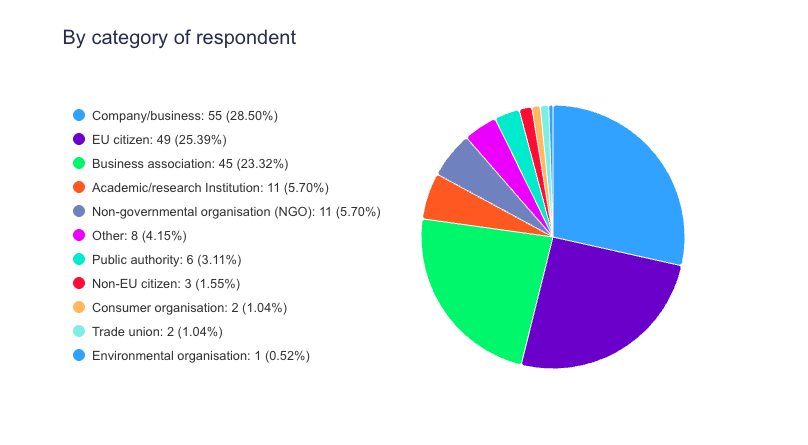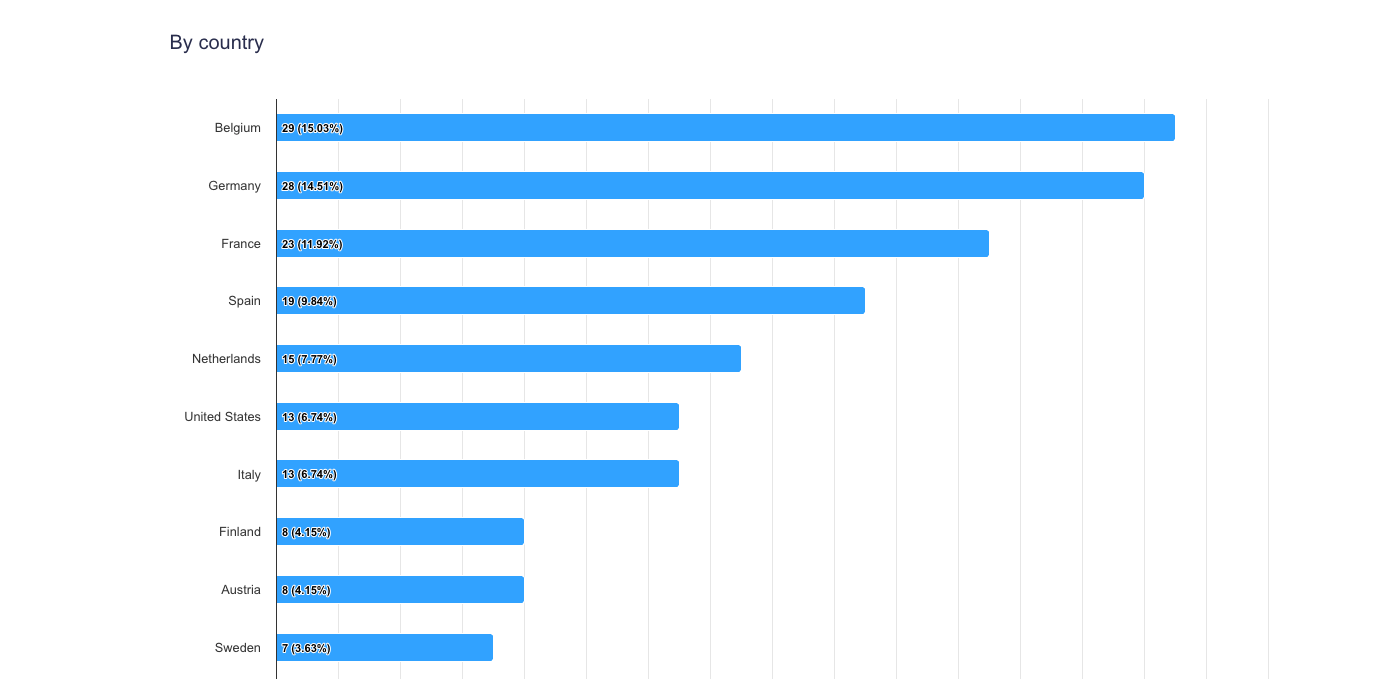Is Europe Really Becoming an AI Continent? Cloud Act Consultation Reveals Support and Deep Concerns
24, July, 2025
The European Commission's call for evidence on the forthcoming Cloud and AI Development Act closed earlier this month, drawing significant engagement from both industry leaders and EU citizens. The feedback period, open from April 9 to July 3, aimed to inform the legislative framework designed to boost Europe’s AI and cloud computing infrastructure.
Although the number of responses is not large enough to support definitive conclusions, the feedback offers valuable insights into the current landscape. More than 190 respondents shared input, with businesses leading participation. Over 28.5% of the feedback came from companies, followed by EU citizens (25.4%) and business associations (23.3%). Academic institutions, NGOs, public authorities, and other stakeholders also voiced their views, highlighting both enthusiasm and concern.

Feedback came predominantly from Belgium (15%), Germany (14.5%), and France (11.9%)—countries with strong stakes in Europe’s digital infrastructure. Notably, responses also came from non-EU countries like the United States, reflecting the global interest in Europe’s regulatory trajectory.

The proposed regulation aims to triple EU data centre capacity over the next 5–7 years while aligning with sustainability goals. Core objectives include promoting investment in green and secure AI-ready infrastructure, reducing permitting bottlenecks across member states, and establishing harmonised rules to boost EU-wide competitiveness.
Beyond Infrastructure: Culture and Democracy in AI policy frameworks
Beneath the numbers lies a more complex picture. While many companies (including SAP, Equinix, Telefónica, and Salesforce) welcomed the legislative direction, several civil society voices flagged cultural, environmental, and democratic concerns.
The KT4D project’s policy brief, in spite of being published before the release of the survey results, expresses similar hesitation over the inattention to cultural risk in current and upcoming AI and big data policy frameworks. The project argues that although the Act is oriented toward technical and economic resilience, it insufficiently accounts for the societal and cultural consequences of large-scale AI deployment. According to KT4D, current regulatory discourse tends to treat culture as peripheral, overlooking the ways that recommender systems, algorithmic filters, and infrastructure investments decisions influence collective identity, democratic participation, and shared values across Europe’s diverse populations.
The KT4D policy brief warns that reducing risk to categories like “unacceptable” or “high” based solely on safety or transparency misses the broader democratic picture. Technologies that manipulate public discourse, filter civic engagement, or shape cultural narratives, such as social scoring systems, targeted newsfeeds, or even seemingly benign applications like emotion-detection chatbots, can erode trust, fracture civic cohesion, and weaken public reasoning. The brief recommends adopting an "inverted risk pyramid" that foregrounds these cultural impacts, calling for regulatory approaches that embed civic dialogue, ethical design, and critical digital literacy into the very fabric of AI policy.
Next Steps: Balancing Sovereignty with Social Responsibility
As part of its AI Continent initiative, the Commission is now preparing a full impact assessment to shape policy options, ranging from non-binding guidelines to a full regulatory framework or even an independent EU agency. The initiative is expected to move forward in Q4 2025 or early 2026. The European Commission faces a dual mandate: building sovereign infrastructure and ensuring AI systems respect Europe's diverse cultures, values, and democratic norms. The feedback collected makes one thing clear: Europe's journey toward becoming an AI Continent cannot be measured solely by server capacity or sovereign infrastructure. It must also be evaluated by its ability to protect civic culture, ensure democratic oversight, and create space for diverse identities and voices in shaping its digital future.